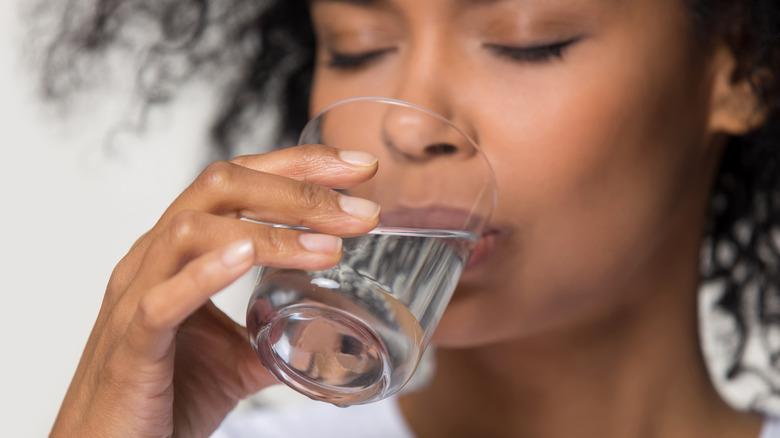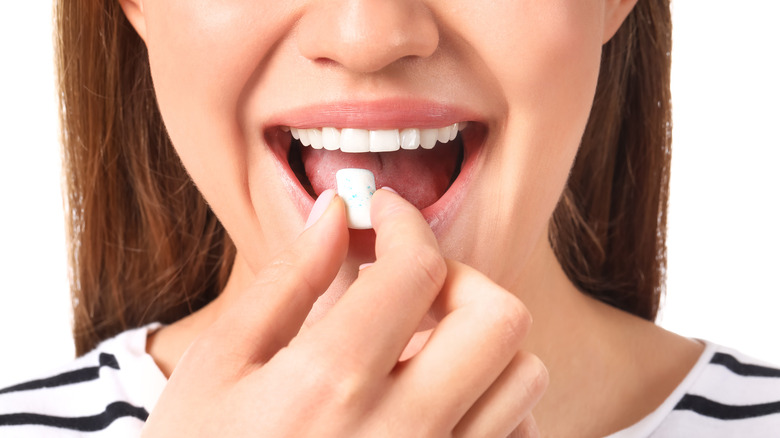How To Get Rid Of Dry Mouth
Dry mouth, or xerostomia, can affect your sleep and everyday life, but it's rarely a sign of anything serious. Sometimes, it's a sign of dehydration. Other times, it may be a side effect of antidepressants, antihistamines, painkillers, or other drugs, notes MedicineNet. Radiation therapy and chemotherapy drugs may cause dry mouth as well. Estimates show that about 400 medications can have this side effect. Other possible causes include diabetes, sleep apnea, anxiety, stress, cigarette smoking, nerve damage, and hormonal fluctuations.
More than 10% of people experience dry mouth at some point in their life, reports MedicineNet. Generally, it's more common in the elderly, but it can affect anyone. A recent study published in Future Virology suggests that dry mouth might be an early sign of COVID-19. As the researchers note, this symptom results from an inadequate flow of saliva, but it may also be due to alterations in saliva composition. The novel coronavirus can affect your salivary glands and cause dry mouth, among other oral symptoms.
In light of the recent events, you may want to take a COVID-19 test if you're having a dry mouth. Also, note that xerostomia shouldn't persist longer than a few weeks — unless you have an underlying condition. Here are some simple ways to get rid of dry mouth and stimulate saliva flow.
Try these home remedies for dry mouth
The American Dental Association (ADA) warns that dry mouth can lead to bad breath, oral thrush, sore throat, or altered taste. You may also have difficulty speaking, chewing, or swallowing. Over time, these issues may increase your risk of gum disease and other dental problems (via WebMD). Luckily, there are some things you can do to get rid of dry mouth and prevent complications.
For starters, avoid sugary, spicy, and salty foods, as well as caffeine and alcohol, suggests the ADA. These foods and beverages can irritate the inside of the mouth, which can affect saliva production. Note that some types of mouthwash contain up to 26% alcohol, per the British Dental Journal. Ethanol, or alcohol, has antibacterial properties, but it can worsen dry mouth. The ADA also recommends sucking on ice chips and chewing sugar-free gum to increase saliva production. Consider using a humidifier at night to add moisture to the air in your bedroom.
Also, drink plenty of water throughout the day to prevent dehydration and keep your mouth moist. You may also need to see your dentist, especially if you're also experiencing bad breath or swollen gums. These symptoms may indicate fungal or bacterial infections and require medical attention. Last but not least, you may try oil pulling or acupuncture to get rid of dry mouth. These centuries-old remedies stimulate saliva flow and may provide some relief, says herbalist K. Simon Yeung, PharmD (via Memorial Sloan Kettering Cancer Center).

